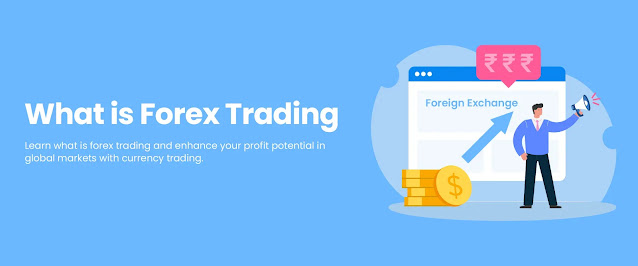What is Forex Trading? - Forex Trading Arena
Forex Trading: Unveiling the Dynamics of the Global Currency Market
Forex trading, often referred to as foreign exchange trading or FX trading, is a dynamic and ever-evolving financial market that encompasses the buying and selling of currencies. This global marketplace serves as the cornerstone of international trade and investment, where currencies are exchanged to facilitate commerce, investments, tourism, and various other economic activities. With its intricate mechanisms and vast opportunities, forex trading has captured the attention of traders, investors, and financial institutions worldwide.
Understanding the Basics:
At its core, forex trading involves the simultaneous purchase of one currency and the sale of another. Currencies are traded in pairs, reflecting the exchange rate between the two currencies. For instance, the EUR/USD pair represents the exchange rate between the Euro and the US Dollar. These pairs are traded on the forex market, where participants seek to profit from fluctuations in exchange rates.
The Global Forex Market:
The forex market operates around the clock, five days a week, due to the global nature of currency trading across different time zones. It's a decentralized market, meaning that there isn't a central exchange; instead, trading occurs through a network of interconnected banks, financial institutions, corporations, and individual traders. This structure ensures that trading can occur at any time, fostering continuous liquidity and opportunities for participants.
Market Participants:
- Central Banks: Central banks play a pivotal role in the forex market by managing their country's monetary policy and intervening in the market to stabilize their domestic currency.
- Financial Institutions: Large banks and financial institutions engage in forex trading to facilitate international transactions, manage currency exposure, and speculate on market movements.
- Corporations: Multinational corporations utilize forex trading to manage currency risks associated with their international operations and transactions.
- Retail Traders: The advent of online trading platforms has opened up the forex market to retail traders, allowing individuals to participate in currency trading from the comfort of their homes.
Market Drivers and Influences:
Several factors influence the exchange rates in the forex market:
- Economic Indicators: Data on employment, GDP growth, inflation, and other economic indicators impact a country's currency value.
- Interest Rates: Central bank interest rate decisions affect the attractiveness of a currency for investors seeking higher returns.
- Geopolitical Events: Political instability, trade tensions, and geopolitical events can lead to currency fluctuations.
- Market Sentiment: Market psychology, influenced by news and investor sentiment, can cause rapid price movements.
Trading Strategies:
Traders employ a diverse range of trading strategies to navigate the forex market:
- Day Trading: Short-term trading aiming to capitalize on intraday price movements.
- Swing Trading: Capitalizing on short- to medium-term trends.
- Scalping: Ultra-short-term trading seeking small profits from frequent price changes.
- Position Trading: Long-term trading based on fundamental analysis and macroeconomic trends.
Risk and Reward:
Forex trading offers significant potential for profit, but it's not without risk. Leverage, a characteristic of forex trading, can amplify gains, but it also increases the potential for losses. Therefore, effective risk management is crucial. Stop-loss and take-profit orders are tools traders use to manage potential losses and secure profits, respectively.
Conclusion:
Forex trading stands as a cornerstone of global finance, facilitating international trade and investment while offering traders and investors an avenue for profit. Its complexity, coupled with its potential for reward, makes it an attractive endeavor for a wide range of participants. Understanding the intricacies of the forex market, employing sound strategies, and adhering to disciplined risk management practices are essential for navigating this dynamic and vibrant financial arena. As technology continues to evolve and markets adapt, forex trading remains a pivotal component of the global economic landscape.

-modified.webp)


.webp)
















No comments